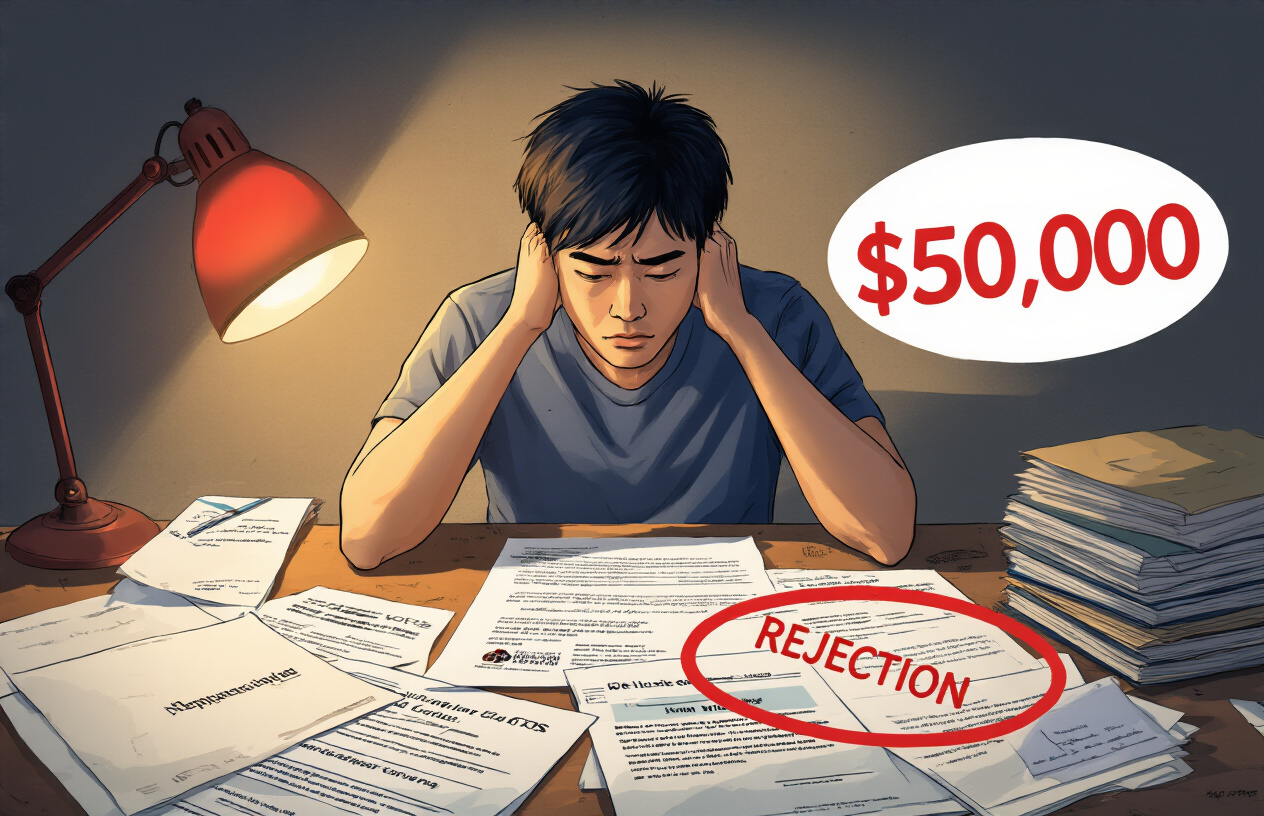High school seniors and parents: I recently sat in on a college essay workshop and couldn’t believe what I saw. Students everywhere are making the same live Common App essay classes mistake that could cost them scholarships and admissions worth $50,000 or more.
In this article Live Common App Essay Classes, I’ll reveal the exact essay trap that’s sabotaging applications, break down the winning formula that top students use instead, and show you how to fix your essay before hitting submit. These aren’t just theories—these are the strategic approaches that have helped students get into their dream schools with scholarship money to match.
The $50,000 Live Common App Essay Classes Mistake Revealed

A. What I witnessed in the live Common App essay class
I didn’t plan to be there that day. But after sneaking into the back of this packed class, I watched in horror as 27 students furiously scribbled notes while the instructor gave advice that made my stomach turn.
“Your essay needs to impress admissions officers with your accomplishments,” she declared confidently. “Make sure to mention your leadership positions, awards, and volunteer work.”
The students nodded eagerly, completely unaware they were being led straight into a trap.
As I glanced around the room, I saw parents who had likely paid hundreds for this “expert” guidance. They smiled approvingly as their kids wrote down exactly what NOT to do in a college essay.
This wasn’t just bad advice. It was the exact formula for creating the same bland, forgettable essay that drowns in the sea of 50,000+ applications that top schools receive.
B. The costly error affecting 90% of applicants
Here’s the $50,000 live common app essay classes mistake in plain English: 90% of students write what I call “resume essays” instead of “revelation essays.”
A resume essay just rehashes achievements already listed elsewhere in your application. It’s the academic equivalent of saying, “I’m awesome because I did these impressive things.”
The problem? Everyone else is doing the same thing in live Common App essay classes.
I’ve reviewed thousands of essays, and roughly 9 out of 10 fall into this trap of live common app essay classes. They write about:
- Being a team captain and learning leadership
- Volunteering abroad and gaining perspective
- Winning a competition and feeling accomplished
Sound familiar?
Meanwhile, the students who get into top schools write revelation essays that reveal something meaningful admissions officers can’t find anywhere else in the application.
C. How does this live common app essay classes mistake impact college admissions decisions
Admissions officers at selective schools aren’t just sorting through applications—they’re drowning in them.
Picture this: It’s August, they’re on their 4,000th application of the season, it’s 11 PM, and they’ve got hundreds more to go. They’ve already read 37 essays about:
- Soccer teaches teamwork
- Grandparents teaching life lessons
- Community service teaching gratitude
Then they read an essay that makes them sit up straight. An essay that reveals something authentic about a student’s character or perspective. Something they haven’t seen in the last 500 essays.
That’s the essay they remember during the decision committee.
That’s the essay that gets flagged.
That’s the essay that gets a student in.
D. The potential financial consequences
The financial impact of this live common app essay classes mistake is staggering.
Getting into a reach school often means better financial aid packages. Elite schools typically offer more generous need-based aid and merit scholarships than less selective institutions.
Take Harvard, which meets 100% of demonstrated financial need without loans. For many families, getting into Harvard is cheaper than their state university.
Beyond college, graduates from top schools still enjoy significant earnings advantages. Studies show the average lifetime earnings difference between graduates of elite universities versus good-but-not-great schools can exceed $50,000 per year.
That’s not just a $50,000 live common app essay classes mistake. Over a lifetime, it could be a million-dollar live common app essay classes mistake.
And it all comes down to an essay that either blends in with thousands of others or stands out as uniquely revealing.
Why Students Fall Into This Live Common App Essay Classes Trap

Common misconceptions about what admissions officers want
The biggest live common app essay classes mistake I see? Students think admissions officers want to be impressed. They don’t.
They’re not looking for superheroes or perfect people. Trust me, they’ve read thousands of essays from students claiming to be the next Einstein or Mother Teresa. Those essays all blend into a forgettable pile.
What admissions officers want is authenticity. They want to see the real you – quirks, flaws, and all. They’re building a community, not a museum of achievements.
Students often believe the myth that their essay needs to cover their entire life story or showcase every accomplishment. This couldn’t be further from the truth. Admissions officers spend about 5-10 minutes on your entire application. Your essay gets maybe 2-3 minutes of that time.
The $50,000 live common app essay classes mistake? Writing what you think they want to read instead of what only you can write.
The influence of well-meaning but misguided advice
Your English teacher tells you one thing. Your guidance counsellor says another. Mom, Dad, and that cousin who got into Harvard all have opinions, too.
And they’re probably all wrong.
Not because they’re trying to sabotage you, but because college admissions have changed dramatically. What worked even five years ago might not work today.
Parents push for essays about leadership and community service because that’s what they think colleges want. Teachers emphasise perfect grammar and structure over authentic voice. Friends share templates that worked for them, but strip away your uniqueness.
The worst offenders? Those “helpful” websites with “winning” essay examples. Students read these and think, “I should sound like that too!” Next thing you know, every essay sounds the same.
How perfectionism leads to generic essays
Perfectionism is the enemy of a great college essay. Students edit and re-edit until their authentic voice disappears completely.
I’ve watched students start with raw, powerful drafts that made me tear up, then systematically remove everything interesting about them. By draft five, their essays could have been written by anyone.
The tragic irony? In trying to create the “perfect” essay, students create perfectly forgettable ones.
Perfectionism also leads to analysis paralysis. Students spend so much time planning the “perfect” topic that they never actually write anything meaningful. They second-guess every sentence, wondering if it’s “impressive enough.”
The most successful essays I’ve seen came from students who were willing to be vulnerable, specific, and real. They wrote about ordinary moments that revealed extraordinary character. They didn’t try to sound smart – they tried to sound like themselves.
Remember: admissions officers aren’t looking for perfect people. They’re looking for real people who will contribute something unique to their campus.
Breaking Down The Winning Essay Formula

A. Key elements that make essays stand out
Want to know what separates a forgettable essay from one that gets a “yes” from top schools? After crashing that live common app essay classes, I found that winning essays have five key ingredients:
- A specific, meaningful story – Not your entire life history, but a single moment that changed you
- Vulnerability – Showing real struggles, not just polished achievements
- Reflection – Demonstrating how you think, not just what you did
- Unique perspective – Your take that no other student could write
- Clear structure – A narrative flow that pulls readers through from start to finish
The secret? Admissions officers read thousands of essays about winning tournaments and community service trips. But they remember the essay about a student who described learning patience through caring for their grandmother’s orchids.
B. Authenticity vs. achievement-focused content
Here’s the $50,000 live common app essay classes mistake most students make: they write achievement resumes disguised as personal essays.
Look at this comparison:
| Achievement-Focused | Authentic Approach |
|---|---|
| “I was captain of the debate team, winning three state championships…” | “I froze on stage during my first debate, but discovered something about myself when…” |
| “My internship at the research lab taught me scientific methods…” | “The failed experiment that turned the lab purple showed me that science is about…” |
| “I volunteered for 200 hours at the hospital…” | “One particular patient at the hospital changed how I think about medicine…” |
The students in that Common App class who shared their “before” essays were almost all in the left column. The ones who got into dream schools? They lived in the right column.
C. The importance of personal voice
Your essay shouldn’t sound like every other applicant. It should sound like YOU.
The admissions counsellor running the class kept saying: “If your mom could have written it, or your friend could have written it, it’s not personal enough.”
Your vocabulary, your sentence structure, your quirks – these create your voice. When I heard essays read aloud in the class, the ones that grabbed attention weren’t necessarily the most polished. They were the ones where you could hear the student’s personality jumping off the page.
D. Storytelling techniques that capture attention
The best essays I heard in that class used these storytelling tricks:
- Started in the middle of action: “The roller coaster lurched forward as I questioned all my life choices.”
- Used sensory details: Not just what happened, but what it smelled, felt, and sounded like
- Created tension: Raised questions that the reader wants answered
- Included dialogue: Short, meaningful exchanges that revealed character
- Showed change: Who you were before vs. after
E. Examples that worked and why
During the class, the counsellor shared three essays that worked brilliantly:
- A girl wrote about her collection of hotel pens and what they represented about her family’s journey from homelessness to stability. Why it worked: Unusual topic that revealed her resilience without directly stating it.
- A boy described learning to make his grandmother’s special soup recipe after she passed away. Why it worked: Showed his cultural connection, family values, and personal growth through a simple story.
- A student wrote about reorganising their messy bedroom and how it reflected their changing approach to life’s challenges. Why it worked: It took an ordinary experience and elevated it to show deep self-awareness.
None of these topics sounds impressive on paper. But they revealed the students’ characters in ways that “I was student body president” never could.
Fixing Your Live Common App Essay Classes Before Submission

A. Identifying if you’ve made the $50,000 live common app essay classes mistake
You know that sinking feeling when you realise you’ve been doing something wrong the whole time? That’s what happens to most students when they figure out they’ve been writing their Common App essay all wrong.
Here’s how to tell if you’ve made the $50,000 live common app essay classes mistake:
- Your essay sounds like everyone else’s. If you could swap your name with another student’s and nobody would notice, you’re in trouble.
- You’ve listed achievements instead of telling a story. Admission officers already have your resume. They don’t need a text version of it.
- You’re trying to impress rather than connect. Big words and complex sentences don’t make you sound smart – they make you sound distant.
- Your essay lacks vulnerability. If there’s no moment where you felt challenged, confused, or changed, you’re playing it too safe.
- You’ve written what you think colleges want to hear, not what you want to say.
The live common app essay classes mistake costs $50,000 because it’s the difference between getting into a school that offers you substantial financial aid versus settling for one that doesn’t. Or worse, not getting in anywhere you truly want to go.
B. Step-by-step revision process
Ready to fix your essay? Follow these steps:
- Take a break first. Set the essay aside for at least 24 hours. You need fresh eyes.
- Read it out loud. Seriously. Grab your phone, record yourself, and listen back. You’ll catch awkward phrasing immediately.
- Highlight the “so what?” moments. For each paragraph, ask “so what?” If you can’t answer why this matters to your story, cut it.
- Find your unique angle. What perspective do you bring that no one else can? That’s gold.
- Cut the first paragraph. Most essays start with throat-clearing. Your real essay usually begins in paragraph two or three.
- Add sensory details. What did things sound, smell, feel, or taste like during key moments? These details make your story real.
- Simplify your language. If a 14-year-old wouldn’t understand it, rewrite it.
C. Questions to ask yourself during editing
Print these out and tape them to your wall:
- “Would my friends recognise me in this essay?” If not, you’re wearing a mask.
- “Does this sound like how I talk?” Essays that mimic your natural voice feel authentic.
- “Am I telling or showing?” Show the admissions committee your story through specific moments, not vague statements.
- “What does this reveal about how I think?” Colleges want to see your mind at work, not just what happened.
- “Is this memorable?” If an admissions officer reads 50 essays today, will they remember yours tomorrow?
- “Does this essay answer the prompt?” Seems obvious, but double-check.
- “Would I enjoy reading this?” If you’re bored writing it, they’ll be bored reading it.
- “Have I been honest?” The best essays aren’t perfect stories – they’re true ones.
Strategic Approaches That Yield Results

A. Leveraging your unique perspective
The $50,000 live common app essay classes mistake I see over and over? Students are trying to write what they think colleges want to hear instead of what only they can say.
Here’s the brutal truth: admission officers read thousands of essays that sound exactly the same. They’re drowning in stories about sports victories, community service trips, and grandparents’ wisdom. Yawn.
Your golden ticket isn’t pretending to be perfect – it’s showing what makes you different.
I watched students in that Common App workshop agonise over picking the “right” topic when they already had incredible stories sitting right in front of them. One student kept dismissing her experience raising chickens as “too boring” when it revealed her patience, scientific curiosity, and commitment to sustainability.
Your perspective is your superpower. That weird hobby? Your unconventional family? The small observation no one else notices? That’s your edge.
Don’t tell them you’re “passionate” – show them through specific details only you know. The colleges that reject your authentic self aren’t the right fit anyway.
B. Aligning essays with specific college values
The second-biggest live common app essay classes mistake I spotted in that workshop was students writing generic essays they could submit anywhere.
That’s throwing money away.
Each college has distinct values they’re looking for. MIT wants different qualities than Yale. Pomona seeks different traits than Georgetown.
Smart applicants research each school thoroughly and subtly align their essays with what matters to that institution. This doesn’t mean pandering – it means strategically highlighting relevant aspects of yourself.
For example:
- A school proud of undergraduate research? Emphasise your curiosity and independent projects.
- A college with strong service learning? Showcase your community involvement and impact.
- An institution focused on global citizenship? Highlight your cross-cultural experiences or perspectives.
The instructor barely mentioned this critical strategy, yet it dramatically increases acceptance rates.
C. Balancing vulnerability and strength
The third revelation from that workshop was watching students struggle with how personal to get.
The most compelling essays reveal both vulnerability and strength. Colleges don’t want perfect robots or endless trauma dumps – they want self-aware humans with growth potential.
The magic formula I’ve seen work:
- Share a genuine challenge or weakness (vulnerability)
- Demonstrate how you addressed it (agency)
- Connect it to your future contributions (growth)
One student’s draft showed tremendous courage in discussing her social anxiety, but missed connecting it to her remarkable resilience and problem-solving skills. Another wrote exclusively about achievements without any humanising elements.
The essays that get results find that sweet spot – authentic enough to be memorable, reflective enough to show maturity, and forward-looking enough to demonstrate potential.
When I asked workshop participants which essays they remembered most from the samples, every single one pointed to stories that balanced vulnerability with strength.
Conclusion

The majority of college applicants make a critical error in their live Common App essay classes that could cost them acceptance to their dream schools, potentially a $50,000 mistake when considering scholarship opportunities. Most students focus solely on telling impressive stories rather than revealing their authentic character and potential contributions to campus. This fundamental misunderstanding of what admissions officers are looking for creates essays that blend into the pile rather than stand out.
To avoid this costly live common app essay classes mistake, remember that winning essays follow a clear formula: they showcase your unique perspective, demonstrate personal growth, and connect your experiences to your future goals. Before submitting your application, review your essay to ensure it reveals something meaningful about who you are, not just what you’ve done. Strategic approaches like focusing on moments of change, highlighting your thought process, and connecting your past experiences to your college aspirations will transform your application from forgettable to compelling. Your essay isn’t just about impressing the admissions committee; it’s about giving them genuine reasons to choose you.
Read Also:


